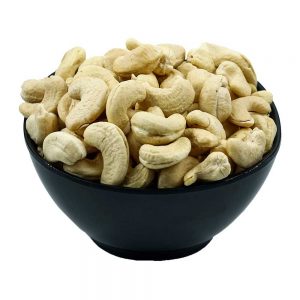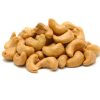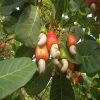Description
The cashew seed is often considered a nut in the culinary sense; this cashew nut is eaten on its own, used in recipes, or processed into cashew cheese or cashew butter. Like the tree, the nut is often simply called cashew.
Cashews are low in sugar and rich in fiber, heart-healthy fats, and plant protein. They’re also a good source of copper, magnesium, and manganese — nutrients important for energy production, brain health, immunity, and bone health. The fat present in cashew nuts are responsible for growth of good cholesterol and reduction of the bad cholesterol. Cashew gives a lot of energy and also keeps you satiated for a long time.
W – 180, is the ‘ King of Cashew ‘ – They are larger in size and very expensive. W – 210, are popularly known as ‘ Jumbo ‘ nuts. W – 240, it is an attractive grade which is reasonably priced. W – 320, are the most popular among cashew kernels and highest in terms of availability, worldwide.
The cashew seed is surrounded by a shell containing toxic oils, such as anacardic acid. This is the same acid found in poison ivy. … After the toxins are removed, the cashews must be graded and sorted. The entire process is labor-intensive as well as hazardous, which helps explain part of why cashews are so expensive.






Reviews
There are no reviews yet.